The Backlash Against Tourism: Understanding What You Can Do
In the last few months, a barrage of articles has been released pointing to a general ongoing backlash against tourism. Protests in Barcelona, anger in Venice over rising rents and locals being pushed out of the city, Thailand choosing to ban so-called “begpackers” – the examples are endless.
Many have talked about the rise of anti-tourist sentiment, but I haven’t seen a lot of talk concerning what tourists can do. As a travel blogger, I love to focus on the positive sides of travel and tourism, because I genuinely believe there are a lot of positive effects to be gained from connecting the world on a deeper, interpersonal level, not to mention the fact that many places have thrived by building tourism revenue into their economic models.
Disclaimer: Lose the Map contains affiliate links and is a member of Amazon Services LLC Associates Program. If you make a purchase through an affiliate link, I receive a small commission at no extra cost to you.
However, hot tourist destinations often find themselves in a bind: their economy has developed to rely on tourism so much that they need to constantly bring in travelers, but when tourism gets out of control, locals get priced out of their own city, authentic neighborhoods get “Disney-fied”, and once-beautiful places start to lose their particular atmosphere and color.
If you don’t have time to read “The Backlash Against Tourism” now, save this post on Pinterest for later!
The question now echoing around the world is, how do we stop tourism from pushing locals out and taking over the roots and heart of a city?
The First Step is Accepting Our Role as Tourists

As travelers, I know a lot of us have had a moment when we’re walking around a European city, a US National Park, or a Thai beach and privately thought “it’s beautiful, but I wish all these TOURISTS weren’t here”!
I know we like to forget this fact, because “we’re AUTHENTIC travelers, not like the others”, but to locals in a city, we are 100% tourists as well. So when we’re in a city, we need to respect local people and local culture, but also treat the area just as respectfully as we would treat our hometowns – no littering, no disturbing the neighborhood, no being a public nuisance (then again, if you’re the kind of person who is a nuisance in your neighborhood as well, stop reading and just go work on being a better person, you are beyond help for now).
After all, as with most situations, it’s usually a select few ruining it for the rest of us. When a bunch of drunken, disrespectful, broke travelers run through a city year after year, trashing the place and skipping on checks because they can’t afford them, local sentiment starts to turn against foreigners. You, and plenty of other travelers like you, may be the most respectful, unobtrusive tourists ever, but unfortunately, you probably look a lot like the assholes that came by and made a mess of the place before you. Though many locals in high-tourist areas retain their friendliness and hospitality, many others have lost their patience.
But as a single tourist, what else can you do?
To begin with, you should familiarize yourself with the general problems that tourism can cause; after all, you need to know the problems you’re fighting against.
The Problems of Tourism
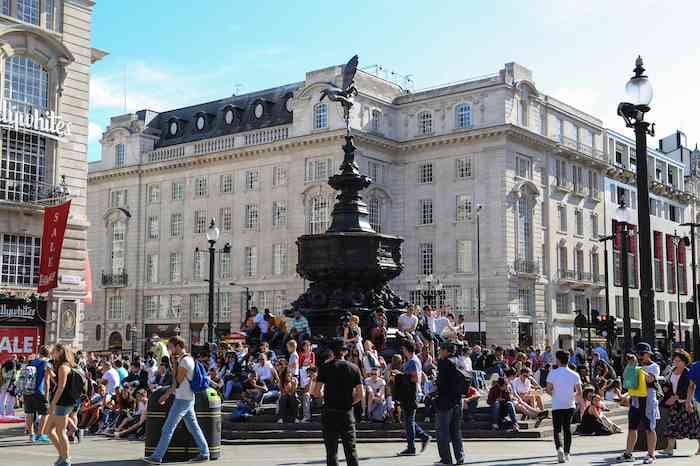
Locals Priced Out of Housing
For all the good Airbnb has done for certain people around the world, it has now created a big problem in some communities. In popular city centers such as Barcelona, landlords know they can command much higher prices for their properties by renting out to tourists through Airbnb than by renting out to locals, so prices are hiked up so disproportionately to local wages that many locals are unable to live in the best parts of their own city.
In Venice, I struck up a friendship with a local man (hi Thomas!) who explained to me that most Venetians have now moved across the sea to Mestre, on the mainland, because Venice is simply unaffordable for Venetians. Anyone who has been to Venice in the last few years knows that on the main drags, aside from the people who work at local shops and in transportation, the chance of actually bumping into a local Italian amid the massive crowds is quite slim.
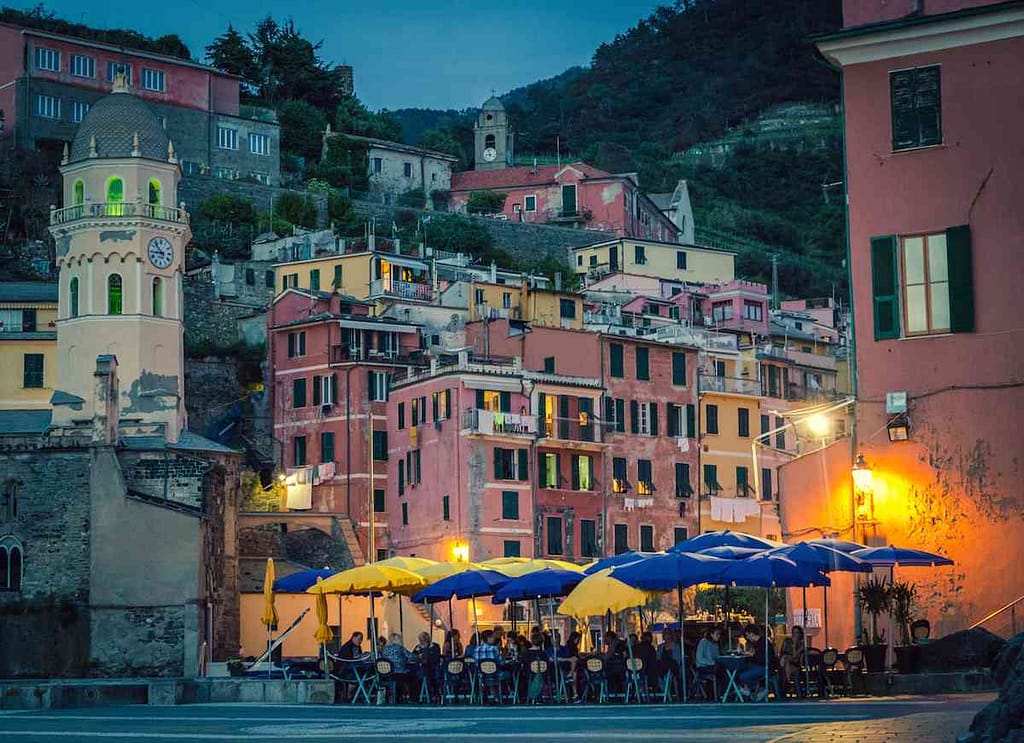
Property Damage and Crime
There are some crimes associated with high-tourist areas, like pickpocketing, that are pretty consistent all over the world. I’m not talking about these crimes here. Earlier this year, a young American man was tragically killed in Zakynthos, a beautiful Greek island, by a bouncer and a group of visiting Serbians. I was involved in several discussions with frequent travelers who talked about how dangerous they felt these tourist-filled parts of Greece were.
The thing is, most of Greece (even in crisis mode) is quite safe. Safer than many countries, and definitely safer than most US and even UK cities, where many tourists are coming from. But fights, rapes, and incidences of property damage and vandalism happen in a handful of tourist-filled areas all the time. These areas, like Zakynthos, Malia, and others, share a certain reputation for attracting drunk, partying travelers from Northern Europe and the US who frequently drink beyond any point of control and then become violent.
What I started finding offensive in some of the discussions regarding the tragic demise of the young tourist was the insinuation that Greeks might be inherently violent and aggressive and associated questions regarding what a tourist should do if a Greek becomes angry (yes, seriously).
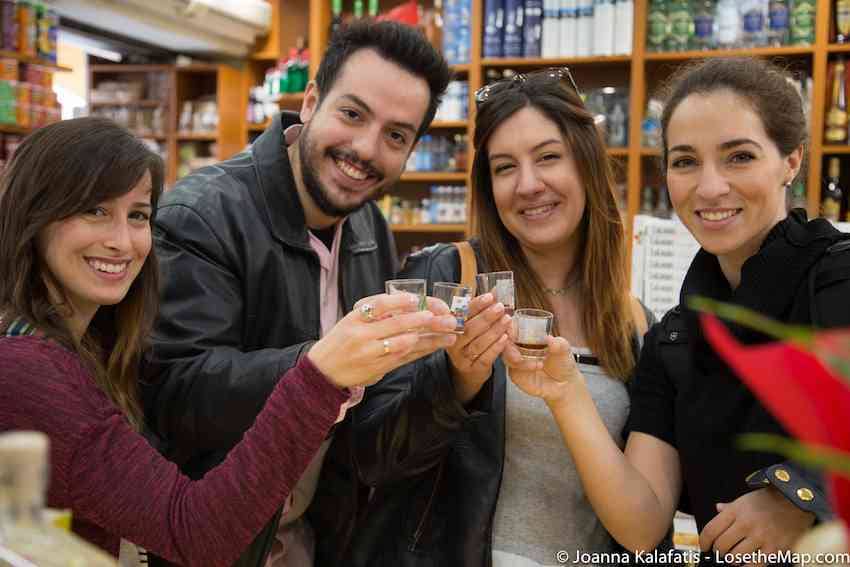
To this I say…what? We (Greek people) aren’t lions on the Serengeti. There’s no “way” to handle a Greek who gets angry, nor are we more prone to random acts of violence than other ethnicities. In fact, the vast majority of violence and crime in these areas is carried out by drunken tourists who feel invincible outside their hometown, and every time an incident happens, the reputation of the country of Greece, in general, takes a plunge.
So in Greece, like many other places, not only do some disrespectful, hard-partying and drinking tourists cause major issues and commit crimes, but the country and its people end up taking the blame for it as well.
Overcrowding
An obvious problem, but a problem nonetheless. When I visited Venice in the summer, simply moving around the city between the hours of 9 AM and midnight was an issue. Every step felt like a Manhattan subway at rush hour, pushing and squeezing through throngs of people going in any and every direction, made worse by the fact that the crowd was mostly filled with travelers who weren’t even sure were to go, and therefore held up foot traffic even more.
The last time I visited Mykonos three years ago, I swore I would never do so again in the summer because the amount of people I encountered everywhere I went out at night was absolutely suffocating.
If that experience was annoying for me as a visitor, imagine what it is like to live in those places. To know that for almost one fourth of the year, and in other places like Barcelona and Rome, for even longer, navigating your own city and perhaps even your own neighborhood will be a constant, overcrowded nightmare.
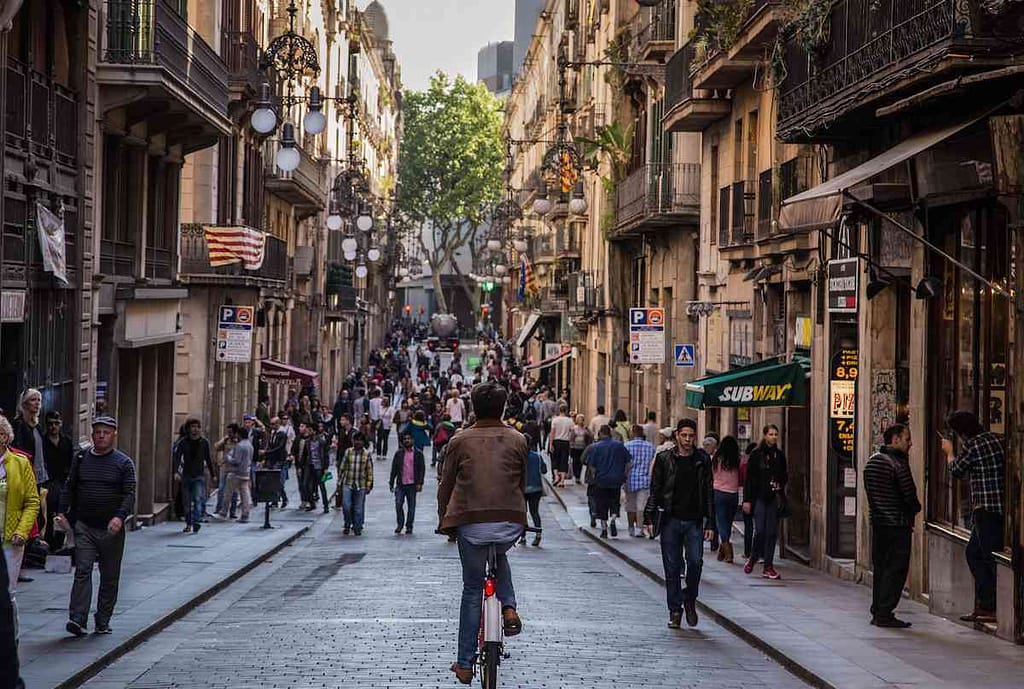
“Begpackers”
I cannot express enough how much I detest people who do this. There have been recent complaints of people in Southeast Asia “begpacking”, aka begging locals to help them fund their travels. It’s important to distinguish that they’re not offering any kind of service or product for this; some long-term travelers fund their travels by providing things like English or music lessons or creating products they then sell, and this is a different thing entirely.
That is not what these people do – “begpackers” (sounds even more annoying the more you say it, hm?) go to a foreign country, usually a country with much lower incomes than their home country, and beg locals who are barely making ends meet for money to fund their travels. Seriously, screw you.
What You Can Do
As just one person, there is not much you can do to change housing policies in the cities you visit or limit the number of overall tourists. However, here are some steps you can take, and encourage others to take as well. For problems like “begpacking” the solution is simple: don’t go to other countries and beg for money. However, there are other things you can also do to help ease tourist congestion or tourist damage to destinations.
Visit During the Off Season, or Go Off the Beaten Path
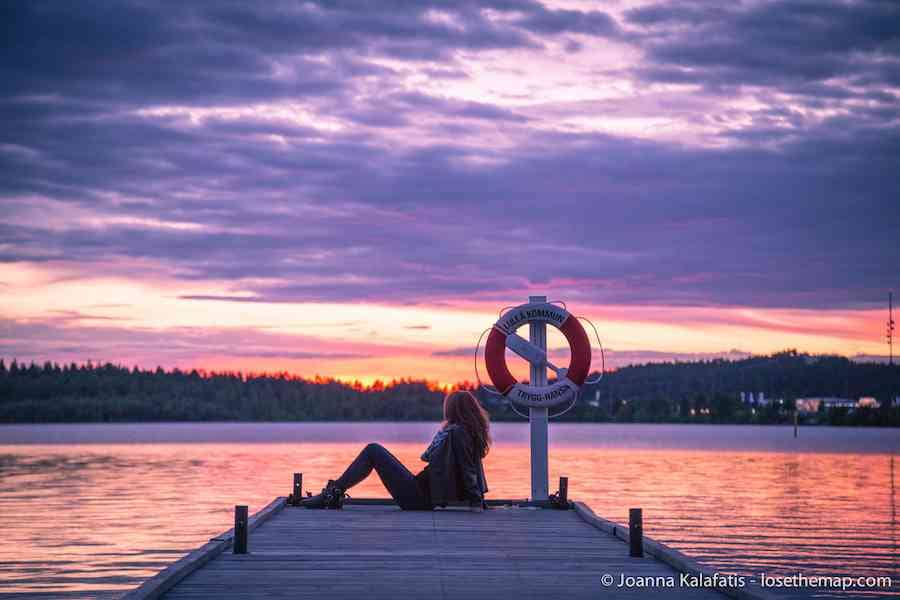
Not only will you experience fewer crowds and enjoy your destination more if you visit countries during their off-season, but you will see a side of your destination most tourists simply don’t. For example, did you know there are great Greek wintertime destinations? Best of all, you will probably find much cheaper airfare costs and local prices, because who the hell visits Finland in December?
So it’s a win for you, win for the locals, win for your wallet.
Otherwise, you can check out one of the many, MANY beautiful destinations throughout the world that don’t get nearly as many tourists as they deserve. Want to explore an alternative European destination? Check out the least visited countries in Europe! Want to visit a Caribbean paradise? Choose one of the seven least visited Caribbean islands! Go beyond the usual altogether and try exploring places you might have never thought of, like stunning Kyrgyzstan or adventurous Bolivia!
Not only will you experience a country and a culture you likely knew little of beforehand, but you will also bring in tourist income to countries that don’t usually see a lot of it, and be one less person crowding the top tourist destinations in the world!
Find Out How to Help and Support Locals
Since you’re spending your money in the country, try making sure more of it goes to support locals and sustainable tourism than to conglomerates taking over local businesses. Stay at local B&Bs and guesthouses, take locally organized tours, shop at locally-owned shops. Of course, this might not be a feasible option every time, and sometimes you may want to stay at a luxury chain hotel or eat at a McDonald’s – that’s perfectly fine.
But if you at least keep the idea of sustainable and local tourism in mind, you will start viewing your spending decisions in a different light and make more decisions that benefit the local population.

Avoid and Call Out Bad Tourist Behavior
Sure, you’re a respectful and considerate tourist, but sometimes your friends are idiots. Other times, countrymen of yours you run into on your travels are idiots. Remind them of this fact. Phrases like “you’re being an idiot” and “try not being an idiot” and “how about you stop embarrassing yourself, you idiot” are usually quite helpful (in your language of choice, of course).
If you don’t like calling people idiots (which, you really should – it’s the best!), whatever helps cut down on the general level of disrespect and stupidity some tourists exhibit works as well.
Accept City and Country-Wide Efforts to Regulate Tourism
It is important to note here that no matter how much you individually do, the problems tourism causes in destinations are usually more the fault of poor or unenforced regulations rather than individual tourists; therefore cities and countries have to take on the burden of fixing most of the issues mentioned above.
Governments are certainly taking steps to combat overcrowding: some small places that have already surpassed capacity when it comes to travelers, such as Santorini and Cinque Terre, are thinking of instituting quota systems to allow a limited number of tourists to visit so the destinations don’t get stampeded.
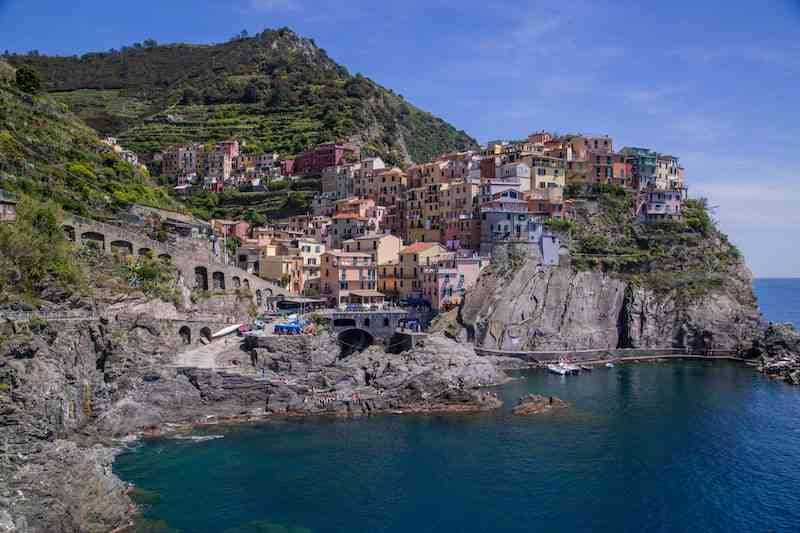
Other cities are banning additional hotels from being built in the city center, or strictly regulating Airbnb and other such services. Many other top destinations have relegated tour buses and cruise boats (often top sources of overcrowding tourists) to specific, designated spots within a destination, forced them to stop outside a destination, or strictly limited their number (many towns in the Czech Republic, for example, have done this to great effect).
As tourists, our first instincts might be to complain about these added regulations and inconveniences for us, but if we truly want to preserve the places we are visiting and help the locals instead of harm them, we must accept that such common-sense regulations are necessary.
Because if, as threatens to currently happen in Venice, tourism affects a destination so much that the local people leave along with their culture, charming city walks are replaced with Black-Friday-like pushing and shoving to reach your destination, the charming shops, restaurants, and bars we love are replaced by sterile chains, and the city’s identity completely changes – what’s the point of going anymore?
What situations have you encountered where tourism has damaged a destination? What would you do to help solve the problems associated with tourism?
If you liked this post, Pin away!


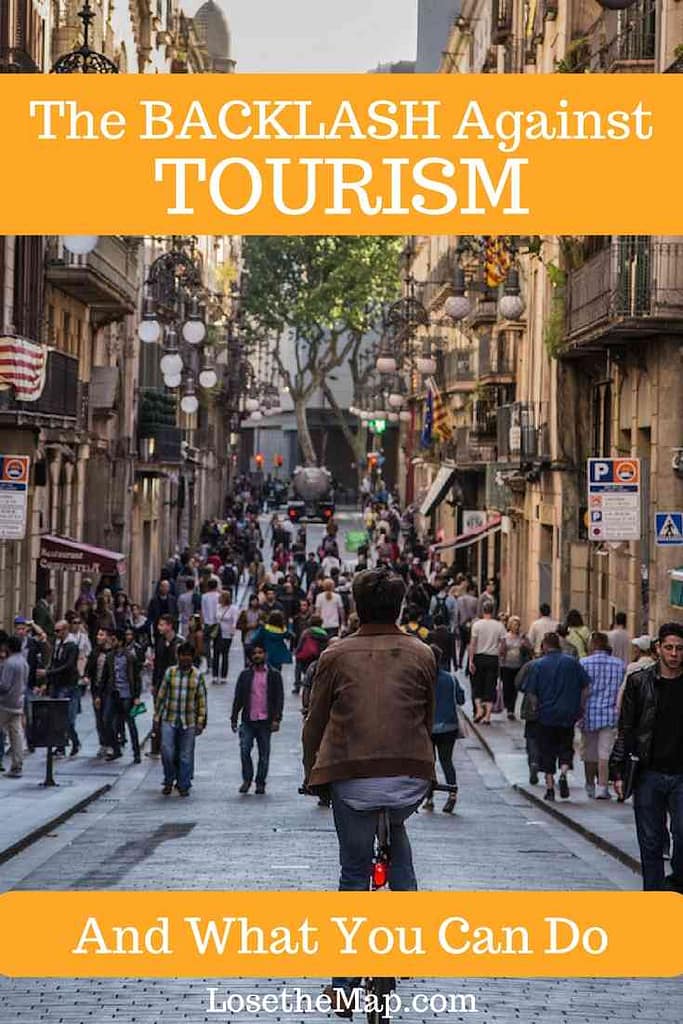
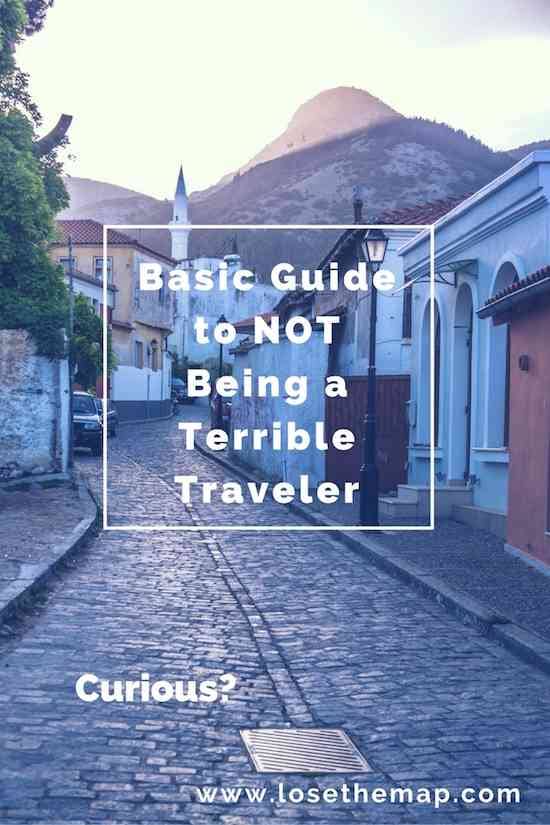
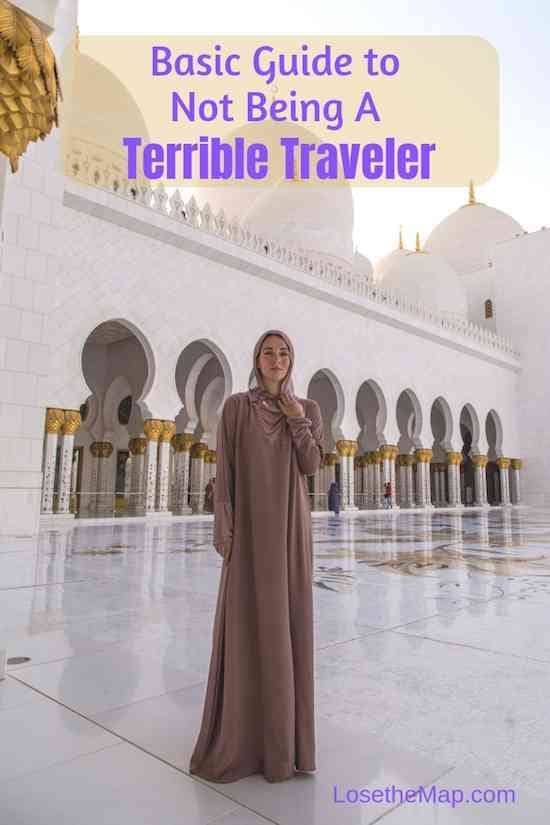
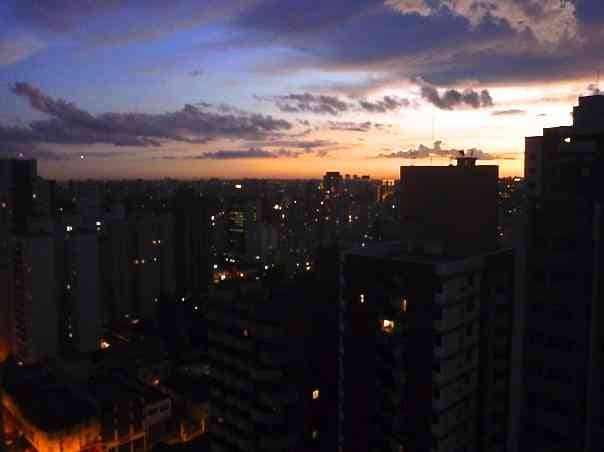
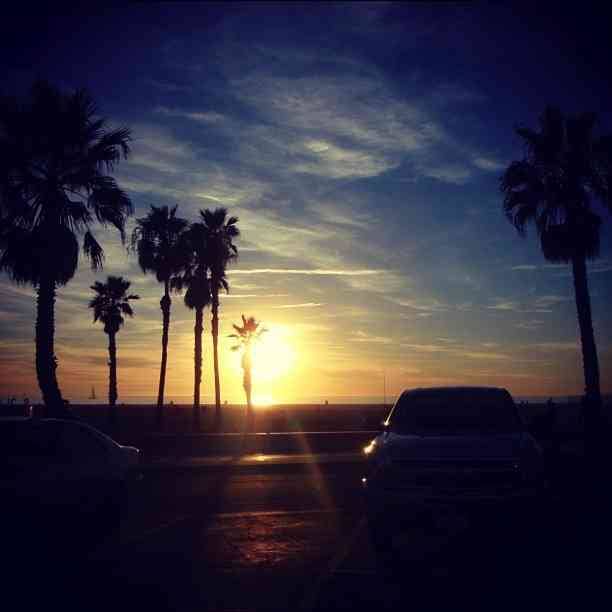
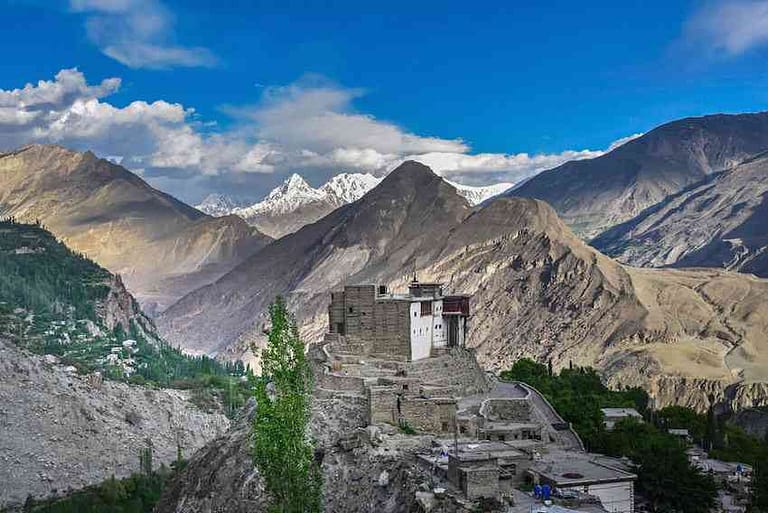


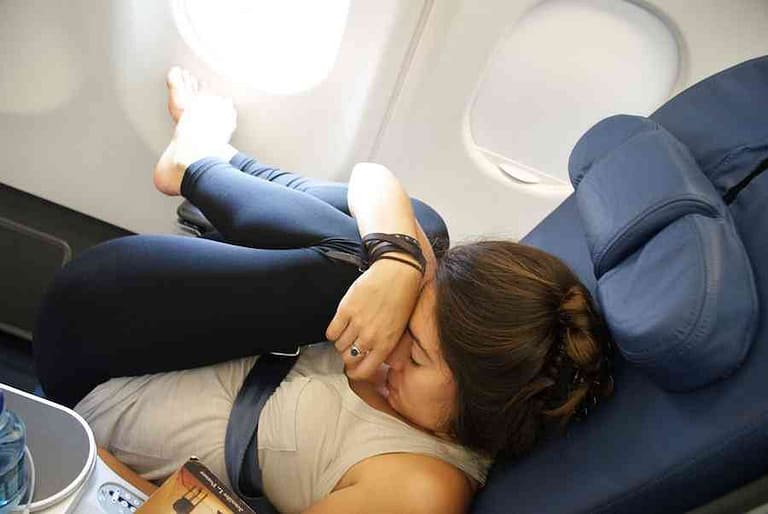
I think the real problem is that traveling has become so much easier and cheaper that we think we’re entitled to go anywhere we want… and we’re not. Even if we want to travel because “expanding our worldview” and learning about other cultures is soooo valuable to us, expanding OUR worldview doesn’t pay other people’s bills. They have a right to say how their homes are used and we should be respectful of that, even if we are disappointed that we aren’t welcome there.
This was a really fantastic read! Found on Tuesday’s Ultimate Pinterest Group! :)
Loved reading this! The problems are true- and I say that coming from one of India’s most popular tourist destinations – Goa.
http://www.thatgoangirl.com
The problems are definitely real! And I can imagine it’s similar in Goa – though I’ve never been, it is definitely on my list!
What a unique travel post! I love how in-depth you went on the topic. I really appreciated the solutions you suggested as well.
Thank you so much! I hope as travelers we start taking these solutions to heart
Love the photos and great article. I detest the begpackers too. Save enough for travel but don’t beg others to fund it (which is considered a luxury to many).
Thank you! Ugh I’m right there with you.
This is a great post and appreciate the honesty with which you write – every point made is true and I couldn’t agree with you more. Accepting our role as tourists is integral. Wish more folks would understand that basic fact.
Thank you very much – accepting that as tourist we can have a big effect, good or bad on the places we visit, is the most important step!
So many of your topics are the same core of my tourism beliefs! Thank you for being honest and creative!!
Thank you very much for your kind words! Glad we share these beliefs!
Wonderfully described. I agree with you ans especially about the begpackers. You expressed my anger too.
Yes! I can’t stand them.
Your points are valid.
I agree that a bunch of drunken, disrespectful, not understanding local culture, misbehaving or trashing the place create a bad feeling among locals. Traveling to different places is much easier and we need people to behave responsibly.
Agreed! Responsible tourism is really the way to go.
I totally agree with you. Responsible tourism is the need of the hour. Just like expats, when we are in the role of tourists, we have to take care and remember not to have adverse effect on the locals. Their outrage at times in understandable.
It is so important to be aware of how we affect the countries we visit, and responsible tourism needs to be understood and promoted so much better! I completely agree!
You make some fine points here. Agree with all of it. “Begpacking” is seriously disgusting. And most of the times off-season is a good idea.
Ugh yes, “begpacking” is the worst. Thank you!
This is so true! There are so many irresponsible travelers who make living difficult for the locals. It should be regulated and I completely detest begpackers. You shouldn’t travel if you don’t have the money for it.
Completely agreed!
This is all great food for thought, and I admit that several of these points hadn’t even occurred to me before!
Glad you enjoyed it!
I agree! There are so many irresponsible travelers who make life difficult for the locals. I think it should be regulated and I hate backpackers.